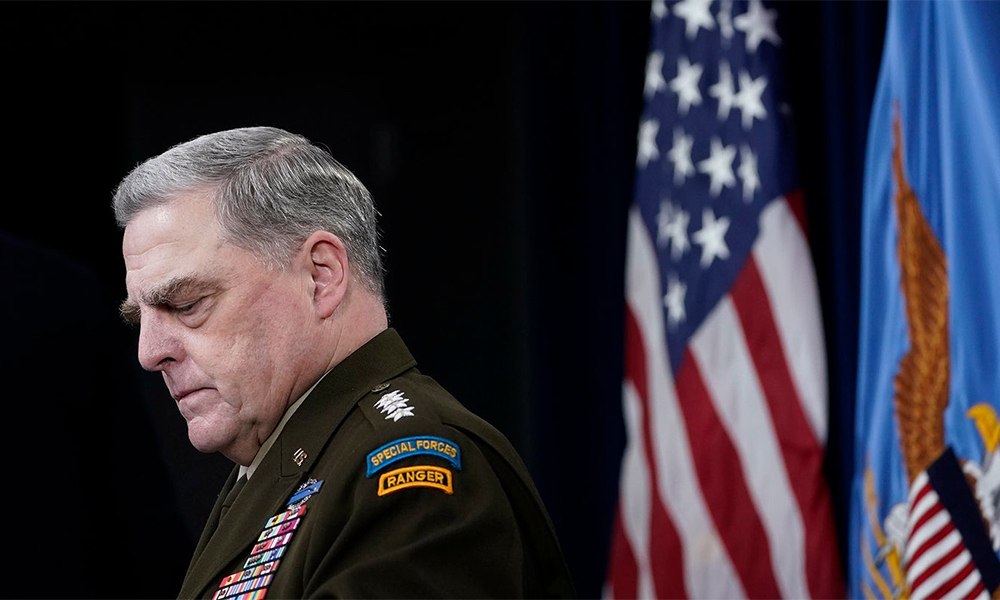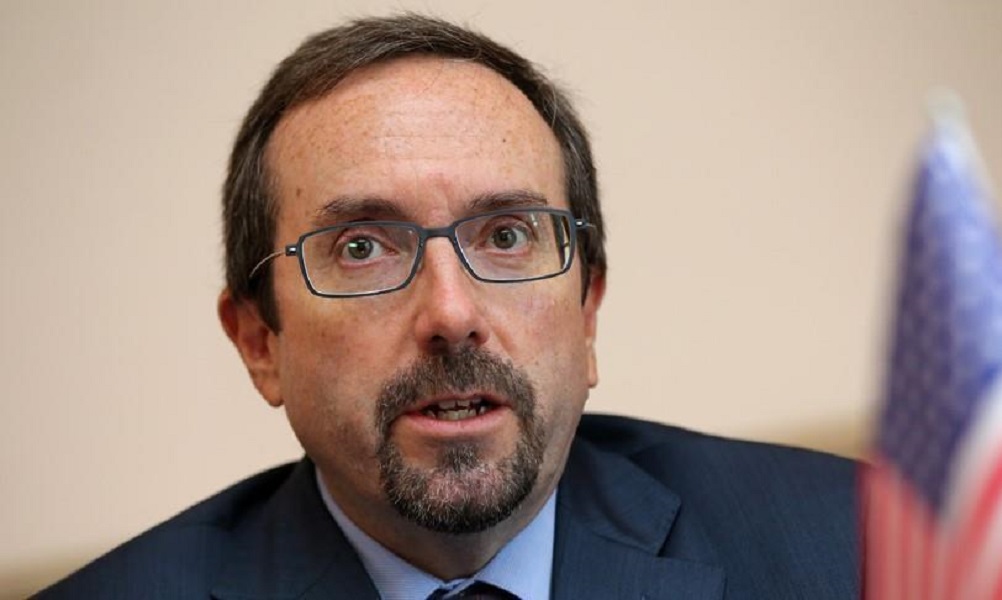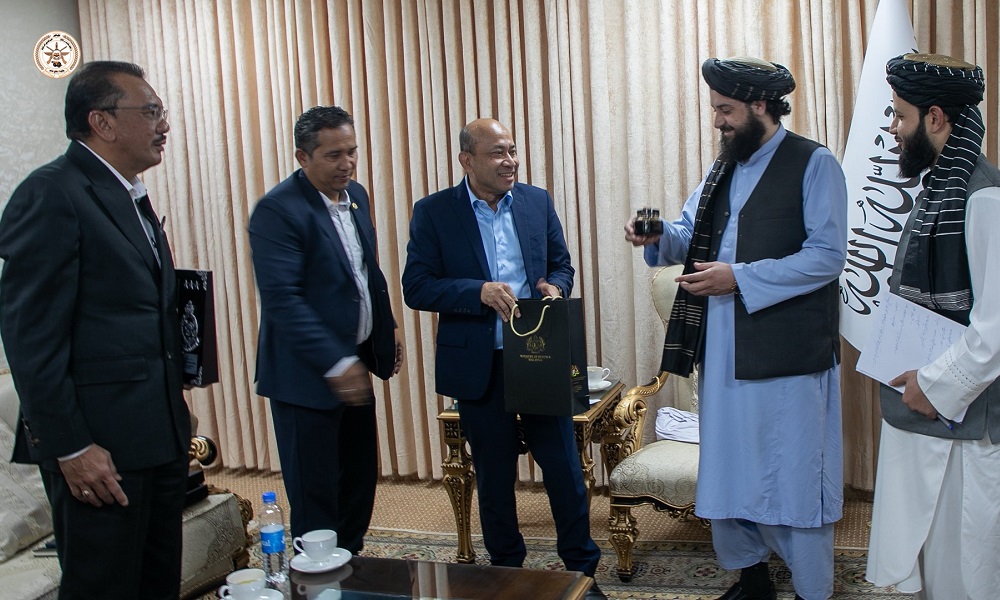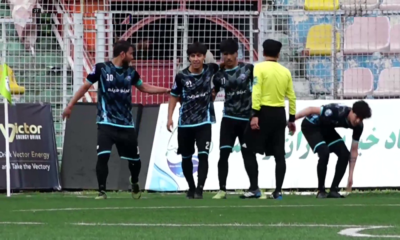Latest News
U.S. efforts in Afghanistan a tactical success, but strategic failure: Milley

US Army General Mark Milley, the chairman of the Joint Chiefs of Staff, called U.S. efforts in Afghanistan a “tactical success, but a strategic failure.”
The Afghan government and military fell to the Islamic Emirate of Afghanistan (IEA) faster than anyone expected, and that was the failure, he said.
But the noncombatant evacuation operation managed to get more than 124,000 people out of Kabul, as the IEA entered the Afghan capital. The effort involved thousands of service members from around the world, Milley said as cited by the US Department of Defense.
Air Force Major General Corey J. Martin discussed the operation last week with the Defense Writers Group. The keys to the evacuation operation were connectivity and planning, he said.
Planning for the noncombatant evacuation operation began in April, immediately after President Joe Biden said the U.S. effort in Afghanistan would end, the DOD reported. “It started with planning, even though the timing of this event was not known,” Martin said.
Members of U.S. Transportation Command integrated with representatives of the U.S. Central Command and the Joint Staff to plan and execute the retrograde operation of U.S. forces and equipment from Afghanistan, he said.
In August, the IEA offensive against the former Afghan government intensified and provinces were taken. Martin said the speed of the collapse was “a bit of a surprise,” but the Transcom planners were not starting from scratch when the need for evacuation became apparent.
Army Gen. Stephen R. Lyons, the commander of U.S. Transportation Command, had another ace up his sleeve in preparing for the possible operation, Martin said. “General Lyons, as the commander of Transportation Command, has standing authorities that allow for rapid and agile repositioning of mobility forces,” Martin told the reporters.
It allows the command to direct the operational movement of C-17s or KC-135 aircraft quicker, he said.
The speed was needed as the dissolution of the former Afghan forces necessitated the transport of U.S. combat forces to secure the Kabul airport.
The command had to get 6,000 service members and their supplies to the country quickly.
The aircraft and personnel to maintain and fuel them were already in place, and it “allowed the operational movement to be ready to take combat forces, literally almost overnight to Hamid Karzai International (airport) in the face of the advancing Taliban (IEA) to secure that airfield, and allowed for the movement of evacuees out, and then the redeployment of the combat forces,” Martin said.
Connectivity among the Office of the Secretary of Defense, the Joint Staff and the U.S. combatant commands was paramount. Martin said there were constant communications with higher headquarters and with U.S. Central Command, U.S. European Command and U.S. Northern Command.
In addition, there were nationals from many allied and partner countries in Kabul. Martin said at least 30 nations cooperated with the effort, which required constant communications with State Department colleagues, Homeland Security and more.
Martin said the Global Operations Center at Scott Air Force Base, in the U.S. was the “heartbeat” of the command with all elements represented. “At the action officer level, there was integration with Department of State personnel, Customs and Border Patrol, and the FAA [Federal Aviation Administration],” he said.
The overall effort was mammoth and complex, Martin said. It is more than the gray Globemaster C-17s. It was the personnel maintaining the aircraft. It was the refuelers — in the air and on the ground. It was the combat troops on the ground and the airmen who took over the air traffic control in Afghanistan for the operation. It was State Department personnel processing the evacuees.
It was the Air Force and Navy air combat patrols over Kabul, and the service members at intermediate bases in the Middle East and Europe. It was the service members and agency partners in the United States. It was the companies and crews of the Civil Reserve Air Fleet. It was intelligence professionals funneling information to the command.
All these people combined to make the noncombatant evacuation operation from Afghanistan a “tactical success,” Martin said.
Transcom is already looking at the experiences in this effort to see what can be done better, the general said.
Latest News
US diplomat Bass travels to Qatar and Pakistan to discuss Afghanistan, regional issues

John Bass, US acting under secretary of state for political affairs, will travel to Qatar and Pakistan April 26-30, US State Department announced on Friday.
In Doha, Qatar, he will meet with senior Qatari government officials and other diplomatic missions to discuss support for Afghanistan and shared security interests in the region, US State Department said in a statement.
In Islamabad, Pakistan, Under Secretary Bass will meet with senior Pakistani government officials to discuss a range of regional and bilateral issues as part of the U.S.-Pakistani partnership, the statement added.
John Bass served as US ambassador to Afghanistan under Donald Trump administration between December 2017 and January 2020.
Latest News
Tripartite trade meeting held in Kabul to boost regional connectivity

A tripartite meeting between the delegations of Afghanistan, Turkmenistan and Kazakhstan was held in Kabul with the aim of connecting North Asia to South Asia and reducing transit and transportation costs among these three countries, the Ministry of Trade and Commerce said in a statement.
In this meeting, an agreement was reached on the creation of a joint technical committee to continue the talks.
This tripartite meeting was held under the leadership of Nooruddin Azizi, the Acting Minister of Industry and Commerce, Vice President of Turkmenistan and Srik Zhumangarin, the Deputy Prime Minister of Kazakhstan.
Earlier, a bilateral meeting was held between the delegation of the Islamic Emirate and Turkmenistan. The ministry of commerce said the participants of the meeting discussed the construction of a large joint logistics center in Torghondi, the trilateral transit agreement between the IEA, Turkmenistan, and Kazakhstan, the expansion of Afghanistan’s railway, solving issues related to Afghan transit and export goods, and a number of other commercial issues.
Latest News
No destructive groups including Daesh present in Afghanistan: Yaqub Mujahid

Acting Minister of National Defense Mohammad Yaqub Mujahid has said that no destructive groups including Daesh have physical presence in Afghanistan, adding the Islamic Emirate of Afghanistan (IEA) will not allow anyone to pose threat to any country in the region from the Afghan soil.
Mujahid made the remarks in a meeting with a delegation from Malaysia in Kabul on Thursday.
According to a statement released by the Ministry of Defense, Mujahid highlighted Malaysia’s “good treatment” of Afghan refugees and its long-standing relations with Afghanistan, and said that Malaysia is a powerful Islamic country and visits should increase.
He added that with the establishment of the Islamic Emirate, occupation and war ended in Afghanistan, and the country is fully secure.
Based on the statement, the Malaysian delegation called Afghanistan a friendly country and while emphasizing on comprehensive cooperation, it assured that what they have seen in Afghanistan will be shared with the authorities of their country.
-

 Latest News4 days ago
Latest News4 days agoRashid Khan named AWCC’s brand ambassador
-

 Regional5 days ago
Regional5 days agoIranian president lands in Pakistan for three-day visit to mend ties
-

 Sport5 days ago
Sport5 days agoKolkata beat Bengaluru by one run in IPL as Kohli fumes at dismissal
-

 Sport5 days ago
Sport5 days agoACL: Aino Mina 3-0 Istiqlal Kabul; Attack Energy 3-0 Khadim
-

 Climate Change5 days ago
Climate Change5 days agoRescuers race to reach those trapped by floods in China’s Guangdong
-

 World4 days ago
World4 days agoMalaysian navy helicopters collide in mid-air, 10 killed
-

 Sport4 days ago
Sport4 days agoJaiswal ton powers Rajasthan to big IPL win
-

 World3 days ago
World3 days agoNorth Korea officials visit Iran in a rare public trip
























